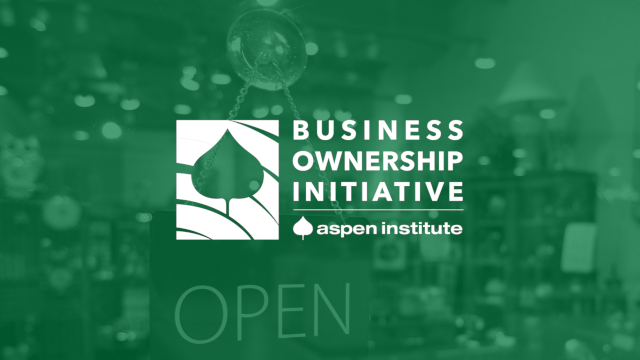Last Wednesday, the Bloomberg editorial board called for Congress – or in its absence, state governments – to pass a truth-in-lending law for small business. This call comes on the heels of a series the outlet published documenting how unscrupulous lenders are using a fairly obscure legal document called a “confession of judgment” to exploit small business owners and withdraw money from their accounts without warning – to disastrous effect. These practices can shut down promising new businesses, harm communities, and ruin lives.
The Responsible Business Lending Coalition, a cross-sector group of lenders, investors, and small business advocates, including FIELD, has been leading on the challenge of reigning in irresponsible practices in the small business lending market. Indeed, Bloomberg recognized the work of this coalition by linking to our policy recommendations that call for truth in lending standards. These recommendations are based on our Small Business Borrowers’ Bill of Rights (BBoR), developed three years ago, which advances a principles-based approach to defining responsible business lending and identifies specific lending practices that uphold those principles. Fifty-five lenders have signed onto the BBoR to attest that they uphold these practices.
The BBoR addresses practices that have emerged in the market in the past decade – practices that can burden small businesses with unsustainable debt that threatens not only the growth potential but the survival of their firms. Our policy recommendations call for steps to require transparency in the disclosure of borrowing costs and pricing (including disclosing price in the form of an annual percentage rate) and prohibits practices such as “double-dipping” and hidden prepayment charges. The BBoR does not address confessions of judgment – a sign that any policy needs to be able to adapt to stay ahead of the bad actors in the system – and the coalition is considering how to do so, thanks to the impressive investigation by Bloomberg.
Calls for extending the same protections that consumers enjoy to commercial loans have been brushed aside by saying that businesses are more sophisticated than consumers and have financial advisors who can sort through and understand the complexities of financing offers. But, among the nation’s 30.2 million businesses, 28.9 million have fewer than 10 employees, and 27.9 have fewer than five employees. Most of these certainly do not have CFOs; many do not have accountants on staff.
There is no question that small businesses are challenged to find loans, particularly in the smaller amounts needed by most small business owners, which is why many may find themselves borrowing from disreputable lenders. New technologies, products, and business models will be essential in filling the credit gaps that exist, bringing new players and lending models into the market. But if business owners cannot make informed decisions about the credit they take on, providing access may have deleterious consequences. In consumer lending, we see this with payday loans and credit cards. The same is true for business financing.
We have begun to see states take action on the policy front. In September, California enacted SB1235, which mandates standardized disclosures on offers of commercial financing. The New Jersey legislature is considering legislation that would require standardized disclosure of annual percentage rates, monthly payments, and minimum payments for commercial financing up to $100,000.
These efforts are a step in the right direction, and federal action would create a level playing field – Senators Sherrod Brown and Marco Rubio have already introduced a bill that could stop the uses of confessions of judgement. In the absence of federal protections, more states should be following the lead of California and the example of the BBoR to ensure as many businesses are protected as possible. But in the meantime, lenders have a choice to offer products in ways that ensure that the risks and terms are clearly understood by both parties – borrower and lender alike. We encourage more lenders to sign onto the BBoR and support better practices across the industry.
Share
Tweet Few small businesses have a CFO on staff. How can they make informed lending decisions? Let’s work to guard entrepreneurs against predatory practices.
Tweet Predatory lending can shut down businesses, harm communities, and ruin lives. No surprise the Bloomberg editorial board (@bopinion) has called for truth-in-lending legislation.
Tweet Lenders should offer products that are clearly understood by their customers. Sign on to the Small Business Borrowers’ Bill of Rights (borrowersbillofrights.org) and support better practices across the industry.
Tweet 55 lenders have signed on to the Small Business Borrowers’ Bill of Rights (borrowersbillofrights.org). As the movement for truth-in-lending gains steam, more lenders should commit to these principles.
Learn more
FIELD at the Aspen Institute works to build understanding and strengthen the role of business ownership as an economic opportunity strategy. Follow us on social media and join our mailing list to stay informed of new announcements and resources.


